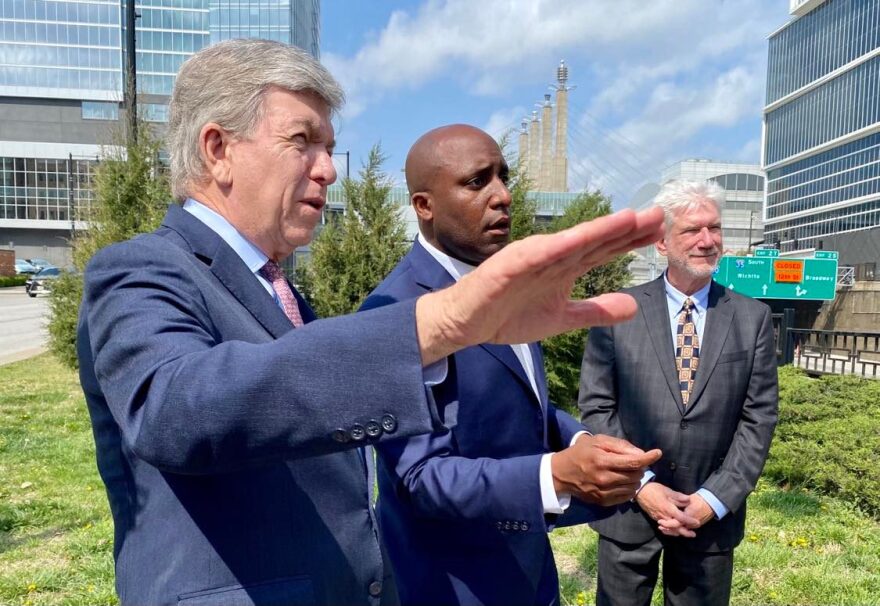Officials on Friday unveiled plans for a four-block-long deck and park over Interstate 670 in downtown Kansas City that promises to transform downtown and spark further development just south of the downtown loop.
Cutting a sunken freeway between downtown and midtown in the 1960s turned out to be a bad idea, and officials for decades have been talking about building a deck to heal the “Kansas City cut." Now, Mayor Quinton Lucas says, that’s finally going to happen.
“We have talked about capping 670 for a number of years, and we will have a lid that's being built,” Lucas said at a news conference where he was joined by U.S. Sen. Roy Blunt, a Missouri Republican, and U.S. Rep. Emanuel Cleaver II, a Kansas City Democrat. “That's been financed, and more than anything, that will be a great gathering space for Kansas Citians.”
The proposed deck would look like a park situated on four-block-long sections, with playgrounds and paths, straddling the freeway between vehicle bridges. Construction could start as early as a year from now. In addition to adding green space, the project would cut the freeway din, in what has morphed in recent years into a high-end residential neighborhood.
It even has a working name.
“I think we just name it Roy Blunt Park already,” Lucas said, only half-jokingly.
Blunt is an enthusiastic supporter of the I-670 deck project. Blunt and Cleaver were the only members of Missouri’s congressional delegation to vote in favor of President Joe Biden’s $1 trillion infrastructure package.

“When the so-called “Kansas City cut” was made to create more speedy transportation, I don't think there was a lot of thought then in Kansas City or in all kinds of other places around America, about what happens when you create that kind of division in community,” Blunt said.
He said the sunken freeway blighted both sides of the neighborhood it cut through. The infrastructure package contains money specifically for healing just such divides, he said.
City Manager Brian Platt said the city is also looking at building decks over other sections of sunken freeway, like parts of U.S. 71 on the east side of Kansas City, or I-70 on the north side of the downtown loop.
The I-670 project would cost about a $160 million. Design is already underway, and Platt said the design portion, costing between $2 million and $4 million, is already paid for.
He said the city has verbal agreements for roughly half the overall project’s cost. He said the budget would break down into roughly equal shares of federal, state and local funding.




